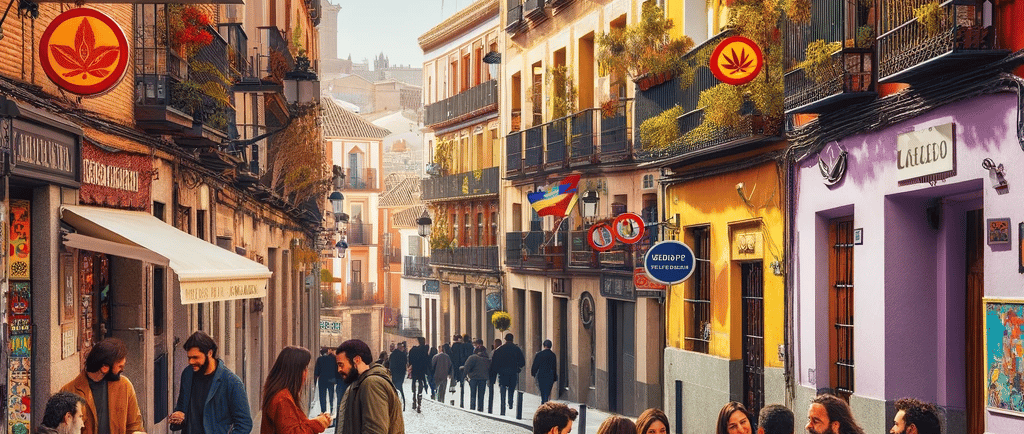Cannabis Clubs in Spain: A Closer Look
In the intricate tapestry of cannabis legislation, Spain presents a unique pattern with its cannabis clubs. These entities, neither fully legal nor outright illegal, operate in a grey area of Spanish law. They epitomize a distinctive approach to cannabis, merging social responsibility with communal use. This article delves into the heart of these clubs, exploring their legal, cultural, and societal facets.
CANNABIS CLUBS
12/6/20232 min read


Cannabis Clubs in Spain: A Closer Look
History and Development
Origins: Cannabis clubs in Spain emerged as a response to the country's stringent drug laws. Pioneered in the early 1990s, these clubs were founded on the principle of private consumption in a shared space, circumventing the legal restrictions on public use and sale.
Growth and Evolution: Over the decades, these clubs have multiplied, especially in regions like Catalonia and the Basque Country. Their evolution reflects a growing tolerance towards cannabis and a shift in societal attitudes.
Legal Framework
Current Legislation: Spanish law criminalizes the trafficking and public consumption of cannabis but allows private use. Cannabis clubs operate within this loophole, claiming protection as private entities where members can consume cannabis legally.
Legal Challenges: Despite their widespread presence, these clubs often face legal hurdles. The ambiguity of their status leads to periodic crackdowns, court cases, and a continuous push-pull with authorities.
Operation of Cannabis Clubs
Membership Model: To join a cannabis club, one must be sponsored by an existing member, pay a fee, and adhere to club rules. These clubs are exclusive and private, emphasizing responsible use among adults.
Cultivation and Distribution: Many clubs cultivate their cannabis, adhering to limits on quantity to avoid being classified as traffickers. The cannabis is then distributed among members, often with an emphasis on safety and quality control.
Societal Impact
Community Engagement: Beyond providing a safe space for cannabis use, some clubs engage in community activities, educational workshops, and even support local charities.
Perception in Society: The perception of cannabis clubs varies across Spain. In some regions, they are seen as a progressive step towards a rational drug policy, while in others, they are viewed with skepticism or opposition.
Challenges and Criticisms
Regulatory Issues: The lack of clear regulations for these clubs often leads to inconsistencies in their operation and legal challenges.
Criticism and Opposition: Critics argue that these clubs may encourage drug use or act as fronts for illegal activities. However, proponents highlight their role in harm reduction and controlled access.
Future Outlook
Potential Changes in Law: There's a growing debate in Spain about fully legalizing cannabis. Such a move could redefine the existence and operation of cannabis clubs.
Long-term Viability and Impact: The future of these clubs hinges on legal developments. They may either become obsolete with full legalization or more standardized if the current legal framework persists.
Conclusion
Cannabis clubs in Spain represent a unique experiment in drug policy and social tolerance. While they currently exist in a legal grey area, their influence on both the culture and the law surrounding cannabis in Spain is undeniable. As Spain grapples with the broader question of cannabis legalization, the future of these clubs remains an intriguing aspect of this ongoing debate.
